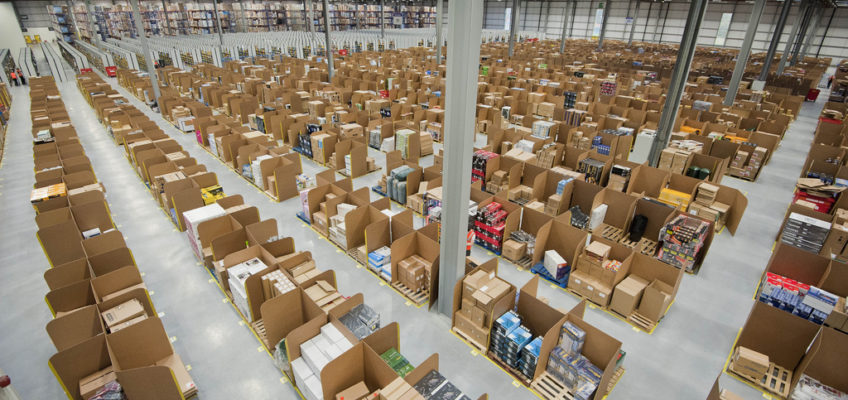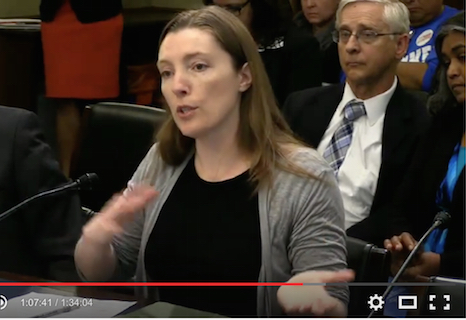This piece was written by ILSR’s Olivia LaVecchia, and first ran as an op-ed in the Star Tribune.
The news that Amazon wants to expand its footprint in Minnesota — but only if it wins significant public subsidies — should put both taxpayers and public officials on high alert.
Amazon is seeking about $5 million in tax breaks to build a new distribution center in Shakopee, not including the costs of significant upgrades to infrastructure and roads. In announcing the project, Shakopee Mayor Brad Tabke heralded the news as “economic development.”
If economic development means quality new jobs and a stronger economy, then the research suggests that subsidizing Amazon’s warehouse would result in just the opposite.
Amazon is a master at getting money out of local governments. A December 2014 report from Good Jobs First, a nonprofit research group that tracks public subsidies, found that Amazon has won $419 million in subsidies from local and state governments. Amazon is big enough that it doesn’t actually need tax breaks to finance its expansion, which means that these subsidies serve mainly to increase its profit and enlarge private wealth, like the $30.5 billion fortune of Amazon CEO Jeff Bezos.
As much as Amazon asks from taxpayers, the company also works to exploit tax loopholes. Ever since Amazon started selling products to Minnesotans 20 years ago, the company has avoided collecting Minnesota sales tax. This strategy has meant that even as Amazon shipped its goods over the roads that this revenue pays for, it was enjoying a price advantage of about 7.8 percent over locally owned Twin Cities businesses — a big margin in any business, especially retail.
In June 2013, when the state Legislature passed a law designed to require large out-of-state retailers to collect sales tax, Amazon abruptly cut ties with its Minnesota sales affiliates, thus ensuring that it wouldn’t have to comply with the new law.
Another reason not to subsidize Amazon’s Shakopee project is that the resulting jobs will be the kind of low-wage, backbreaking positions that only intensify income inequality. The average hourly wage at Amazon warehouses is below the average wage for U.S. warehouse workers; the company also squeezes extra, unpaid work from its employees. For instance, Amazon requires workers to go through daily security checks that can stretch 30 minutes long — without pay. As with everything else in its ruthlessly efficient supply chain, Amazon has figured out how to get the maximum amount of labor from its warehouse employees. Investigative journalists have documented the brutal pace and dangerous conditions inside Amazon warehouses, like life-threateningly high temperatures.
What’s more, the numbers show that Amazon actually destroys more jobs than it creates. While brick-and-mortar retailers employ 47 people for every $10 million in sales, Amazon employs only 14 people per $10 million in revenue, according to U.S. census data and Amazon’s annual reports. This means that as Amazon grows and crowds out other businesses, the result is a net decrease in jobs.
Within that slice of brick-and-mortar retailers, it is independent retailers that create even more jobs, our research has found — 57 jobs for every $10 million in sales. In other words, providing tax breaks to giant companies like Amazon disadvantages the locally owned enterprises that add real value to the economy.
These local businesses are the ones that maintain a diverse and competitive marketplace, keep dollars in the area economy, and foster civic engagement and community well-being. These are also the companies that could use subsidies like training grants or low-interest loans to actually create more value — instead of more private profit.
Other local governments, confronted by what a bad idea it is to subsidize large retailers, have legislated against it. Arizona, for instance, passed a state law limiting the use of tax incentives to fund retail development projects in the greater Phoenix region. The Phoenix metro area is thriving.
Taxpayers’ dollars should not be used to bend the marketplace in favor of big business at the expense of our local entrepreneurs. Public officials need to look closely at Amazon’s request for tax breaks, and realize that a subsidy for a new warehouse is the last thing that Minnesota — or Amazon — needs.





